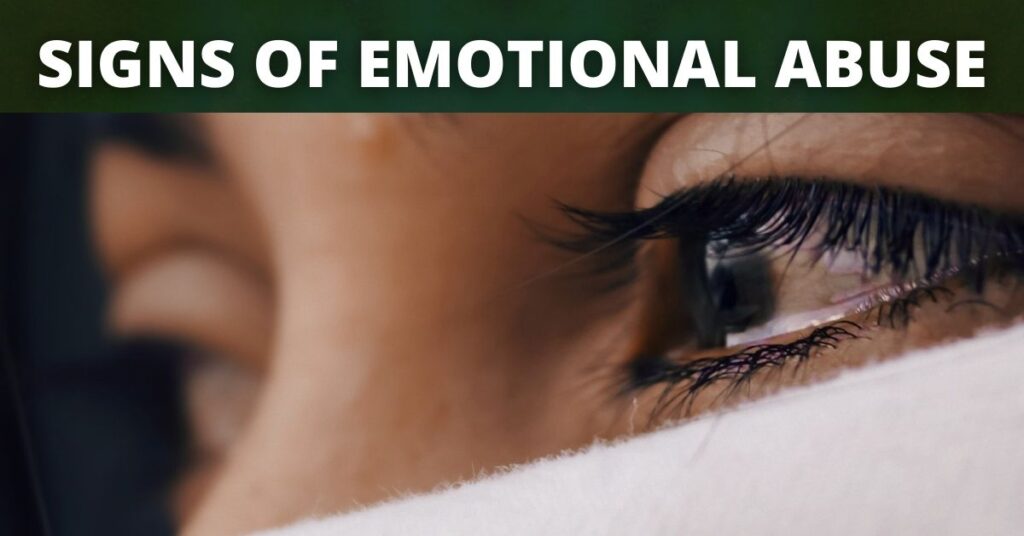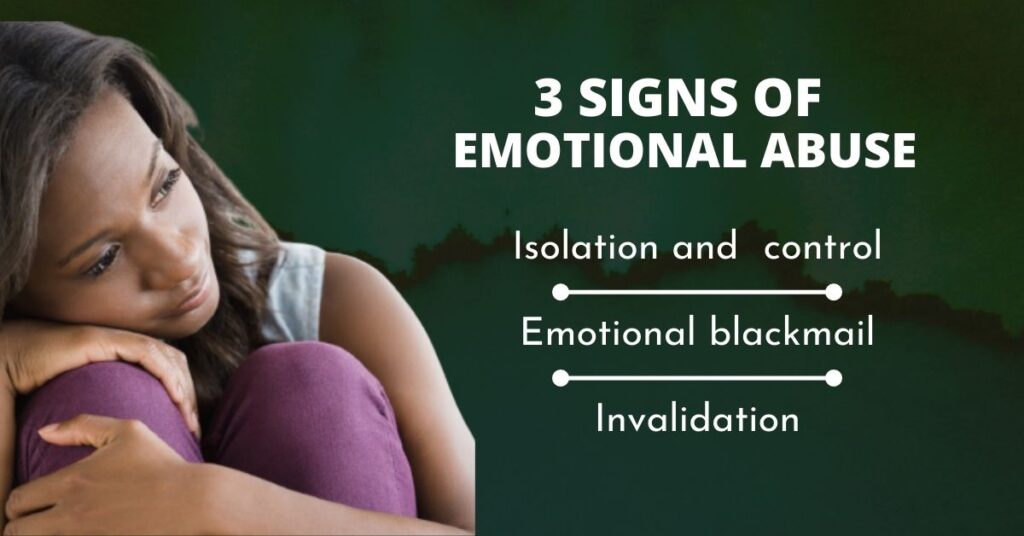Trends
3 Signs of Emotional Abuse (And How to Deal With It)
Emotional abuse affects our physical health as much as domestic violence. Here are three signs you are being emotionally abused.

Emotional Abuse is rarely talked about as many people focus on physical abuse/domestic violence. The irony of this, however, is that emotional abuse does as much damage to your health as physical abuse.
This form of abuse is very common among both adults and children but is rarely seen as “abuse”. Emotional abuse is not only present in romantic relationships. Children are often abused by their parents and siblings face it too. This parasite can be present in any relationship.
What is Emotional Abuse?
Simply put, Emotional Abuse occurs when a person is constantly being criticized, manipulated and embarrassed in a way that brings down their self-esteem.
This is probably not strange to the average adult as it is common in various relationships (friendships, family relationships, romantic relationships) as mentioned earlier.
According to Tikvah Lake, research shows that between 50 and 80 percent of adults may experience emotional abuse in their lifetime. Equally, the Center for Disease Control and Prevention tags emotional abuse as a childhood experience that affects up to 11 percent of children.
The effects of emotional abuse are very dangerous because they are often hidden. A physically abused person may walk around with swollen eyes and a black face so it is easier to say that such a person has been abused physically.
However, even though the effects of emotional abuse eventually affect a person’s physical health, the victims may easily cover up their pain with a smile. It is understandable when other people cannot recognize that one is being emotionally abused, but it would be a lack of self-awareness to walk around without realizing it yourself.
Signs of Emotional Abuse
This kind of abuse is often subtle and hardly noticed, however, these three signs will help you realize if you’re in an emotionally abusive relationship.
1. Invalidation
When a person’s opinions and perceptions are constantly invalidated, it’s a sign of emotional abuse. An abuser would often undermine and dismiss the perception and reality of his victim. Another form of invalidation is seen when a person tries to dictate how another should feel. Abusers often dismiss the feelings of their victims as invalid and describe them as being “overly sensitive” or “too emotional” when they express themselves.
2. Emotional Blackmail
According to Positive Psychology, emotional blackmail is “the process in which an individual makes demands and threats to manipulate another person to get what they want”.
This is a direct pointer that you are being emotionally abused. Here are a few examples of emotional blackmail:
- Your abuser uses your fears to control you or the situation you’re in.
- He/she exaggerates your flaws or weaknesses to avoid responsibility for their own actions.
- Lying about things that happened.
- Withholding affection.
3. Isolation and Control
Emotionally abusive people will always try to control you and isolate you from external help. You fall into this category when your abuser dictates who you spend your time with (including family and close friends), monitors you digitally and physically, becomes too possessive and treats you like a property.
How To Deal With Emotional Abuse
The interesting thing about emotional abuse is that you hold the power to free yourself from the grip of your abuser. Unlike Physical Abuse, it may not have the backing of NGOs to protect victims when they receive a report. Here are five proven ways you can help yourself out:
- Put yourself first: Make yourself a priority and quit worrying about how to please your abuser. Take care of your physical health by getting adequate rest and eating healthy meals.
- Realize that you are not the problem: Being in an emotionally abusive relationship will definitely tamper with your self-esteem and confidence level. This will make you constantly doubt and blame yourself. To recover from emotional abuse, quit blaming yourself.
- Put boundaries in place: Stand up to your abuser when they’re being rude to you or when they call you names.
- Avoid Arguments: Remember, you’re trying to heal from emotional abuse. You shouldn’t put yourself in the same situation you’re trying to get out of. Walk away from unnecessary arguments.
- Talk about it: Build a network of trusted people you can talk to. Expressing how you feel is a form of healing on its own. Speak up.
Summary
An abuser may not realize that he is one because it has become a part of them as a result of constant practice from childhood. However, it doesn’t water down the fact that they are dangerous to a person’s health and should seek proper counsel.
Read more on the effects of emotional abuse on your physical health.

